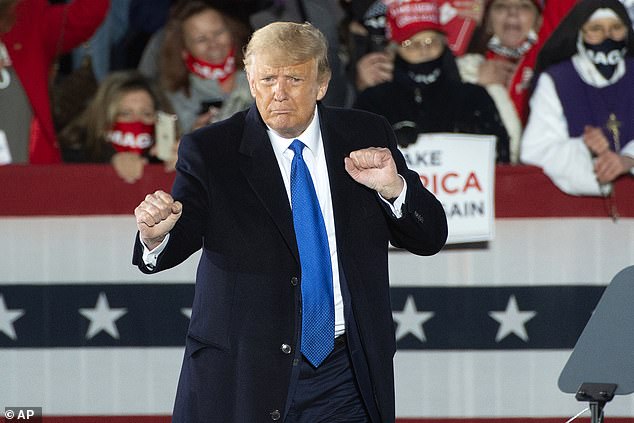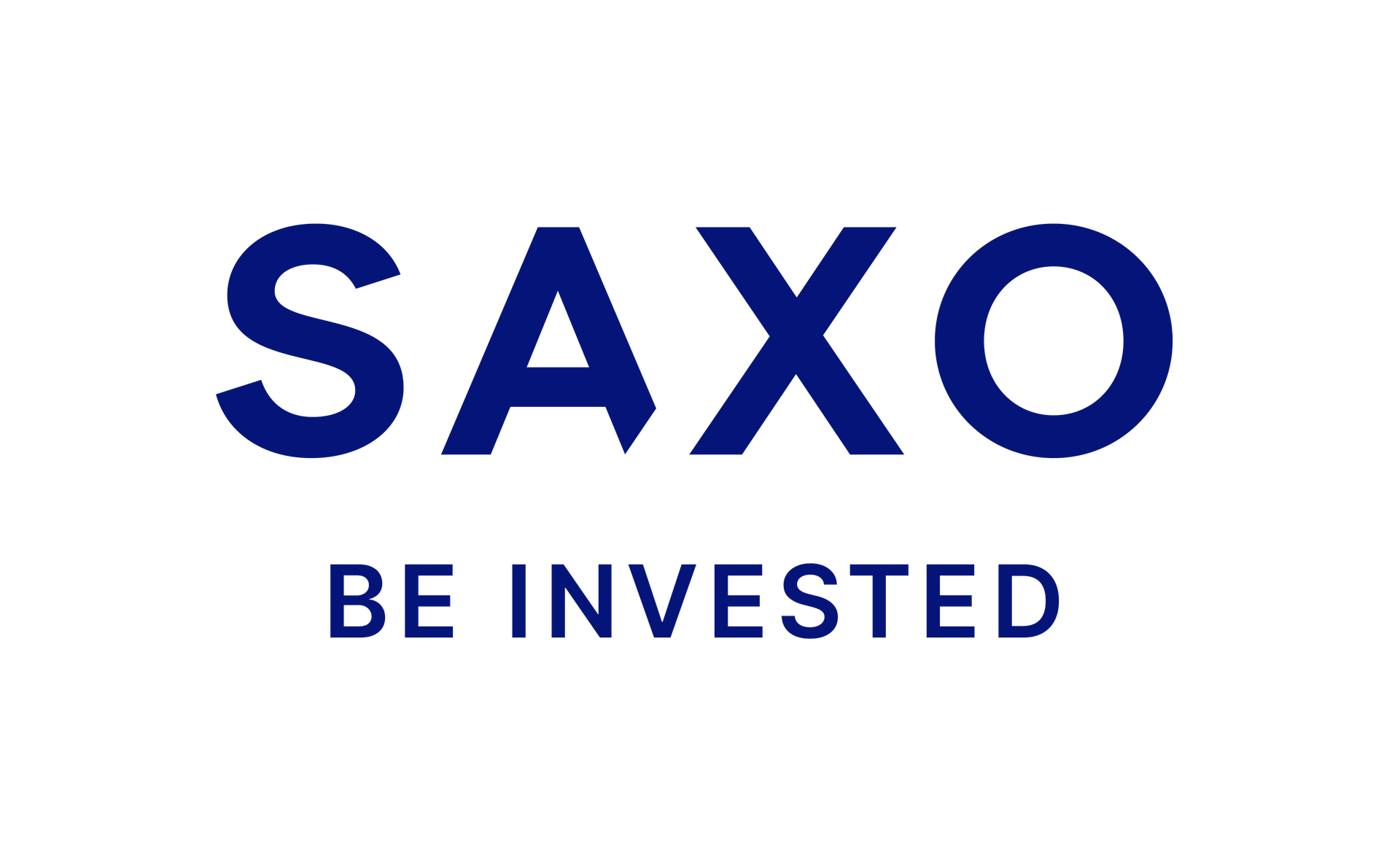Where to put YOUR money in 2025: our stock guru reveals her top tips to boost returns
Most investors make a New Year’s resolution to renew their portfolio. But in 2025, there is an unusual amount of uncertainty surrounding this annual makeover.
How will President-elect Donald Trump’s tariff plans play out – in the US and around the world?
Will new companies emerge to slow the rise of the big tech companies, which have been boosted by the generative artificial intelligence (AI) revolution?
John J Hardy, chief strategist at Saxo Bank, says 2025 will be a year of ‘big questions’, but also a year of excitement.
“We are entering a new era,” he says. ‘Old economic models are breaking, but that creates opportunities.’
What’s the best way to make the most of these confusing circumstances?
Key markets: The US was the best performer by a clear margin, with Germany in second place in 2024
Be an optimist, says Mike Fox, head of equities at Royal London Asset Management. “This does not mean that investments can only go up,” he adds.
“Obviously some years they don’t.
But in the long run, societies improve, economies grow, innovation flourishes – and optimism wins.”
If you like this way of thinking, here are the themes expected to shape the direction of the major stock markets in the coming months.
America
Donald Trump will be sworn in as US president on January 20 and then begin implementing policies that include imposing tariffs and cutting the federal budget by $2 trillion (£1.6 trillion), with the help from Tesla boss Elon Musk. .
The scale of the endeavor is enormous, but there is a belief that the results can be rewarding.
Niamh Brodie-Machura, co-chief investment officer at Fidelity, believes U.S. companies’ profits will exceed those of other developed countries, which will “strengthen American exceptionalism.”
Rathbone Asset Management emphasizes that investors must be prepared for disruption: “It’s Trump, so it’s wise to expect good, bad and wild things.”

Donald Trump: Policies include imposing tariffs on imports and cutting the federal budget by $2 trillion
Peter Branner, Chief Investment Officer at Abrdn, warns that it would be dangerous to underestimate the scale of the disruption.
Against this backdrop, Rathbone argues that “US stock prices may not be cheap, but they aren’t expensive either,” adding that growth must come from a mix of “tighter finances, less bureaucracy, more private enterprise, cheaper energy and interest rate cuts.” .
In 2024, the best way to benefit from American exceptionalism is to back the tech stocks that make up the megacap Magnificent Seven: Google owner Alphabet, Amazon, Apple, Meta (the Facebook and Instagram group), Microsoft, Nvidia and Tesla.
The Magnificent Seven should continue to dominate, but Goldman Sachs Asset Management is urging investors to look beyond this gang if you want more attention to the generative AI revolution.
For example, the semiconductor group Broadcom, which designs processors to accelerate AI systems, is seen as ‘the new Nvidia’. Stephen
Yiu, manager of the Blue Whale Growth fund, says Nvidia, already a $3.3 trillion company, would find it difficult to grow another 50%. As a $1 trillion company, Broadcom has a better chance of such expansion.
If you want to bet more broadly on the America first strategy, consider an investment fund like JPMorgan American, which includes Apple, Meta, Nvidia and Trane Technologies, which builds cooling systems for the massive data centers on which the AI revolution depends .
Mike Fox of Royal Asset Management describes the construction of these centers as a ‘once-in-a-generation investment boom’.
McDonald’s is another holding company. Jack Caffrey, the trust’s manager, says the fast-food chain has “an iconic, quintessentially American brand – and a very defensive model.” A third of the American population eats there every week.
The smaller US companies are also worth your consideration in light of BNP Paribas’ forecast that their profits could rise 30% in 2025 and 2026.
Artemis US Smaller Companies and Premier Miton US Opportunities are the experts’ fund choices to take full advantage of the potentially rewarding disruption in this sector. Trump’s desire to deregulate takeover rules could lead to merger mania.
Great Britain
Concerns about the fall budget fallout, inflation and borrowing costs appear to be looming over UK markets.
But the gloom is not present everywhere. First, because our manufacturing sector is small, we should be less affected by Trump’s tariffs. As many as two-thirds of respondents to a survey by broker Jefferies expect the FTSE 100 to rise by 2025.
Analysts claim that many UK companies have strong balance sheets and are generating cash. This suggests they should be more resilient if rates remain higher for longer and inflation remains persistent.
Guy Anderson, manager of the Mercantile Investment Trust, sees reasons to be cheerful in low unemployment, real wage growth and low household debt.
Given these factors, Anderson is optimistic about the prospects for homebuilders like Bellway. Since the budget, shares of these companies have tumbled due to doubts over the government’s construction targets, but they are now starting to look oversold.
The perception that UK shares are a bargain could mean a new burst of takeover activity following this year’s merger mania, which saw £52 billion worth of deals for UK companies completed in early November. FundCalibre suggests the TM Tellworth UK Smaller Companies fund as a way to benefit from this trend.
As 2024 draws to a close, there is talk that the focus on the US means the UK markets are no longer ‘relevant’. Carl Stick and Alan Dobbie, managers of the Rathbone Income fund, are keen to dispel this idea and decide to make the case for UK plc as a source of dividends for the millions who invest primarily for income.
AJ Bell predicts that FTSE 100 members will pay out £83.6 billion in dividends by 2025, an increase of 6.5% on 2024 – and a new record.
Europe
It will be difficult to generate enthusiasm for Continental Europe in the coming months. Germany, formerly the EU’s superpower, is in recession in almost every respect, while France is politically stuck and facing budgetary problems of such magnitude that Abrdn argues it should be seen “as a peripheral market, rather than a core market’.
This sounds distasteful, but contrarian investors may think differently. Jules Bloch, co-portfolio manager of the JPMorgan European Discovery Trust, said valuations of European smaller companies are “at one of the most attractive levels since 2012, with interest rates having peaked, real wages rising and consumer confidence improving.”
Bloch argues that these companies are the next winners in AI and drug-assisted weight loss. This month, the meteoric rise of Novo Nordisk, maker of Ozempic and Wegovy, was halted by poor results for its new Cagrisema drug. But a more obscure Danish company waits in the wing: Zealand Pharma, whose products also include a weight-loss treatment.
The woes of France and Germany have overshadowed the recovery in Spain, where the Ibex index is up 13% this year, and in Italy, where the Borsa Italiana is up 10%.
The European Smaller Companies Trust is a way to play a part in the recovery of the beautiful south – and a recovery elsewhere.
China
China will be the main target of Trump’s tariffs. But there are indications that Beijing is gearing up for a trade war, preparing to boost consumption, improve investment efficiency and boost domestic demand. The world’s second-largest economy will try to halt the downturn with a three trillion yuan (£327 billion) bond issue to fund innovation.
But betting on a successful outcome takes strong nerves, in light of this year’s failed stimulus packages.
Nevertheless, as John Citron of investment trust JP Morgan Emerging Markets says, China’s advanced manufacturing and electric vehicle sectors are flourishing, thanks to government policies that appear effective.
BYD, the electric vehicle maker, is on track to sell more cars than Ford or Honda by 2024. Shares are up 634% since 2019.
But analysts still rate the stock a ‘buy’.
Can the combative Trump (photo) block BYD’s progress? Or will the company continue to move faster than European automakers in 2025?
That’s one of the things investors will be looking at in 2025 – in a year when no one can assume they have all the answers.
DIY INVESTMENT PLATFORMS

A. J. Bell

A. J. Bell
Easy investing and ready-made portfolios

Hargreaves Lansdown

Hargreaves Lansdown
Free fund trading and investment ideas

interactive investor

interactive investor
Invest for a fixed amount from € 4.99 per month

Sax

Sax
Get £200 back in trading fees

Trade 212

Trade 212
Free trading and no account fees
Affiliate links: If you purchase a product, This is Money may earn a commission. These deals have been chosen by our editors because we believe they are worth highlighting. This does not affect our editorial independence.
Some links in this article may be affiliate links. If you click on it, we may earn a small commission. That helps us fund This Is Money and keep it free to use. We do not write articles to promote products. We do not allow a commercial relationship to compromise our editorial independence.
